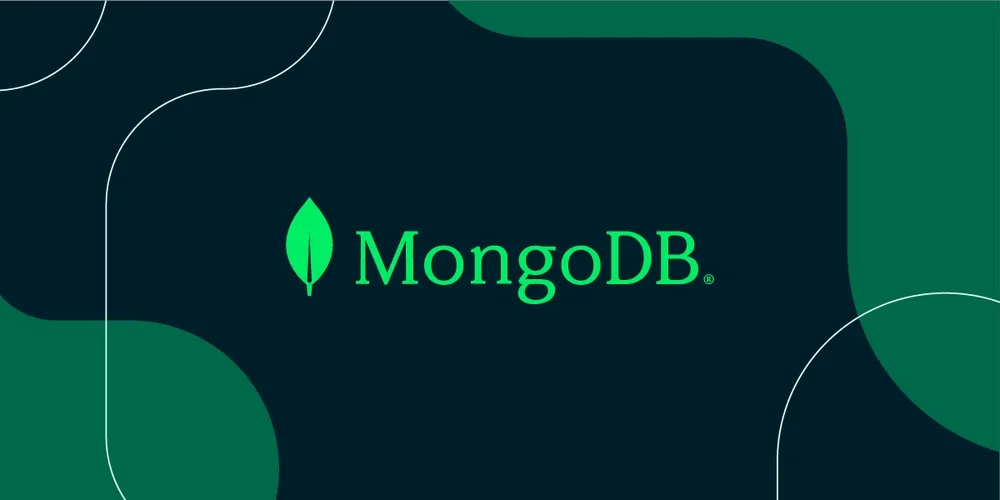Hire Dedicated Shopify Developers
High-conversion Shopify stores
Expert Shopify customization
Smooth app integrations
Continuous store support
Agile project delivery

Build Your Shopify Store with the Right Tech-Stack and Aligned with Your Growth Vision
Unlock your brand's online potential with Shopify's intuitive platform, expertly tailored for a seamless customer journey.
Our development ensures your store is not just functional but also deeply integrated with your brand identity, fostering trust and driving engagement.
Invest in a robust online foundation with Shopify, engineered for speed and reliability to meet today's demanding shoppers.
We build adaptable stores that are equipped with the latest features and designed to scale effortlessly, ensuring your business remains competitive and prepared for future growth.
Hire Specialized Shopify Developers for Your Unique E-commerce Needs
Shopify Theme Development & Customization
Create Shopify pixel-perfect, conversion-focused themes with responsive and engaging UX/UI.
Benefits of Hiring Shopify Developers
Expertise in both front-end and back-end Shopify.
Budget-friendly Shopify development options.
Quick turnaround for Shopify stores.
Swift troubleshooting for your Shopify store.
Scalable and adaptable Shopify solutions.
Direct communication for clear project progress.

Tech Stack Expertise of Our Shopify Developers
At Dappinity, Shopify developers use a powerful mix of technologies like Liquid, HTML5, JavaScript, GraphQL, and modern CSS frameworks, along with expertise in Shopify CLI, Polaris UI, and third-party app ecosystems — all to craft smooth, high-performing Shopify stores.
 Shopify
Shopify Magento
Magento NopCommerce
NopCommerce
 HTML5
HTML5 CSS3
CSS3 JavaScript
JavaScript AngularJS
AngularJS React.js
React.js Vue.js
Vue.js TezJS
TezJS
 MySQL
MySQL PostgreSQL
PostgreSQL MongoDB
MongoDB DynamoDB
DynamoDB SQLite
SQLite Firebase
Firebase
Testimonials
The team delivered high-quality work that met our expectations in terms of design and functionality.
Why & Benefits
Join Dappinity to work at the forefront of digital innovation, collaborating with top-tier tech talent on meaningful projects for global clients. We offer a flexible, remote-friendly work environment, competitive compensation, and clear career growth opportunities. At Dappinity, you’ll enjoy continuous learning, mentorship, and recognition in a collaborative, inclusive culture that values creativity, impact, and professional development. Elevate your career while shaping future-ready solutions with us.
Why Hire Shopify Developers from Dappinity?
Dappinity provides expert Shopify Developers offering scalable, innovative, and client-focused solutions while ensuring high quality and timely project delivery.
- Expert Developers
- Agile Project Management
- Cost Effective Solutions
- Superior Software Quality
- Optimized Operational Costs
- Time Zone Compatibility
Benefits of Dedicated Shopify Developers
The dedicated Shopify Developers team at Dappinity delivers innovative, scalable, and secure solutions, ensuring seamless collaboration and future ready applications.
- Tailored Software Solutions
- Cutting Edge Technology
- Agile Development Process
- Seamless Collaboration
- Future Ready Applications
- End to End Support
Hire Shopify Developers Fast with Our Simple Process

Tell us what you need - tech stack, experience, timelines.

We send you pre-screened developers matched to your needs.

You interview. You decide. Start in as little as 72 hours.

Easily scale up or down. We stay flexible as you grow.
1Engagement Models (Full-time, Part-time, Hourly, Project-Based)
When hiring Shopify developers, choosing the right engagement model ensures your eCommerce store meets both budget and business goals:
Full-time Developers:
Ideal for businesses with ongoing Shopify needs such as theme customization, app development, third-party integration, and long-term performance optimization. Full-time developers offer deep familiarity with your brand and platform.
Part-time Developers:
Perfect for recurring but less-intensive tasks like product updates, sales campaign setups, or minor design tweaks. A cost-effective option for stores with steady but not constant needs.
Hourly Developers:
Best for small tasks or urgent fixes such as resolving checkout issues, fixing mobile responsiveness, or updating specific page layouts. Ideal when flexibility is key and workload is unpredictable.
Project-Based Developers:
Suited for defined Shopify projects like building a custom store, migrating from another platform, developing a private app, or setting up a subscription-based store. Provides clarity on deliverables and deadlines.
2Development Methodologies: Best for Shopify Projects
Structured development ensures your Shopify store performs reliably and launches on time. Here are the best-suited methodologies:
Agile:
Perfect for dynamic Shopify stores where marketing, promotions, and product strategies change frequently. Agile enables flexible iterations and rapid feature deployments.
Scrum:
Effective for larger teams working on multiple store components such as custom app features, performance enhancements, and internationalization. Scrum helps organize these into sprints with measurable goals.
Waterfall:
Great for simple Shopify projects with fixed requirements like theme setup, product import, or one-time design customization. Waterfall provides clarity through sequential phases.
3Matching Tech Stack Needs with Shopify Expertise
Shopify developers are proficient in tools and technologies essential for building, customizing, and scaling eCommerce stores:
Frontend Technologies:
- HTML5, CSS3, JavaScript, and Liquid (Shopify’s templating language) for building responsive, branded storefronts.
- TailwindCSS / Bootstrap – For custom styling and layout improvements.
Backend (App Development & APIs):
- Shopify Admin API & Storefront API – Used to build and integrate private/public apps and manage store data.
- GraphQL & REST APIs – For interacting with Shopify’s backend, managing data, and integrating third-party systems.
Shopify Ecosystem Tools:
- Shopify CLI – For theme development, app generation, and store previewing.
- Theme Kit – To develop and deploy themes locally.
Third-Party Integrations:
- CRM, ERP, and POS integrations (like HubSpot, Zoho, Salesforce).
- Email marketing platforms (Klaviyo, Mailchimp).
- Payment gateways, shipping providers, and tax calculation services.
Shopify Plus:
Developers also offer expertise in Shopify Plus for enterprise-grade stores needing automation, international expansion, or wholesale/B2B functionality.
Security:
Shopify developers adhere to best practices like using secure apps, HTTPS enforcement, API rate limits, and data encryption to ensure safe customer transactions.
4Ensuring Code Quality for Shopify Projects
High-quality Shopify development ensures smooth performance, SEO optimization, and future scalability:
Code Reviews:
Code is reviewed to meet Shopify standards—optimizing Liquid code, avoiding inline JavaScript, and ensuring minimal render-blocking assets.
Testing:
- Unit & integration testing for Shopify apps and third-party scripts.
- Theme testing on multiple devices and browsers to ensure responsiveness.
- A/B testing for features and design layouts to improve conversion rates.
Linting & Formatting:
Using tools like Stylelint and Prettier to ensure consistent code, improve readability, and reduce bugs.
Performance Optimization:
Developers optimize theme assets (images, CSS/JS), implement lazy loading, reduce unused code, and use Shopify’s Online Store 2.0 best practices to improve Core Web Vitals.
Version Control & CI/CD:
Version control with Git, and CI/CD pipelines via GitHub Actions or Bitbucket Pipelines help streamline deployment and avoid downtime.
5Security & IP Protection for Shopify Development
Protecting your store's assets and customer data is crucial when working with Shopify developers:
NDAs & Contracts:
Have developers sign NDAs and include clear ownership clauses in contracts to secure themes, apps, and custom code.
Source Code & Repo Security:
Use private Git repositories (GitHub, GitLab) with 2FA. Store theme files and app code securely, and restrict branch access as needed.
App & Theme Ownership:
Ensure all custom apps, themes, and integrations are registered to your business accounts and domains.
Role-Based Store Access:
Grant developers access via Shopify staff accounts with permissions based on their roles (theme only, app only, etc.). Remove access after project completion.
IP Rights:
Define IP ownership and ensure “Work for Hire” agreements are in place for any custom Shopify development work.
6Freelancer vs Dedicated Shopify Developer: What’s Better for Your Project?
The choice between hiring a freelancer or a dedicated Shopify developer depends on your business size and scope:
Freelancers:
Great for quick customizations, theme tweaks, or setting up marketing automation. Freelancers are budget-friendly and ideal for startup eCommerce stores.
Dedicated Shopify Developers:
Best for scaling businesses, large product catalogs, and ongoing projects like CRO (conversion rate optimization), app development, and Shopify Plus implementation. Dedicated developers ensure consistency and faster iterations.
Engage Dappinity for Your Shopify Development
From sleek Shopify themes to advanced Shopify Plus solutions, Dappinity delivers full-scale eCommerce stores that drive results. Partner with us to launch or elevate your store — built for growth, optimized for users, and tailored to your brand.
600+
Project completed12+
Years Experience100%
Positive reviews92%
Customer RetentionTransparency
Strict Privacy Assurance with NDA
Talented Team of Developers
12 Months Free Support
Smooth Collaboration & Reporting
On time Delivery, No Surprises
Efficient & Adaptive Workflow
FAQs About Hiring Shopify Developers
Shopify is a leading cloud-based eCommerce platform that allows businesses to create, customize, and manage online stores with ease. It provides robust tools for managing products, payments, inventory, shipping, and marketing — all without the need for extensive technical expertise. Shopify developers help businesses build custom themes, integrate third-party tools, and enhance functionalities using Shopify’s Liquid templating language and APIs.
Hiring a Shopify developer ensures your online store is optimized for performance, design, and user experience. A dedicated developer can:
1. Customize themes and create unique storefronts
2. Integrate third-party apps or APIs
3. Optimize site speed and SEO
4. Implement advanced features like subscriptions or multilingual setups
5. Ensure security and scalable architecture
This leads to better conversions, lower bounce rates, and a professional look for your store.
Shopify developers work with a mix of frontend and backend technologies, including:
1. Liquid: Shopify’s templating language for theme customization
2. HTML5, CSS3, JavaScript, and jQuery
3. GraphQL and REST APIs for data manipulation
4. Shopify CLI and Theme Kit for local development
5. Git for version control
6. Apps integration using Shopify App Bridge and Polaris for admin UI
Yes! Shopify supports extensive third-party integrations through APIs and apps. Developers can connect your store with platforms like Salesforce, HubSpot, Zoho, Mailchimp, QuickBooks, and ERP systems for automation and seamless data flow. Custom app development or private apps can also be built to cater to specific business needs.
Shopify is ideal for small to medium-sized businesses and offers all the essential features to run an online store.
Shopify Plus is an enterprise-level solution offering higher customization, scalability, advanced API access, automation tools (like Shopify Flow), and dedicated support for large-scale businesses. Shopify developers can help migrate, set up, or optimize stores on both platforms.
Shopify themes define the design and layout of your store. There are free and premium themes available on the Shopify Theme Store, and all of them can be customized using:
1. Shopify’s theme editor (GUI-based)
2. Custom code editing using Liquid, HTML, and CSS
Developers can create fully custom themes or modify existing ones to match your brand and UX goals.
Hiring from Dappinity is simple:
1. Share your project scope – requirements, timelines, and goals.
2. Get matched with expert Shopify developers with relevant experience.
3. Interview and select the best fit for your team.
4. Kickstart development with full transparency, reporting, and continuous support.
Yes, experienced Shopify developers can help improve your store’s performance and SEO by:
1. Optimizing page speed
2. Implementing schema markup
3. Ensuring mobile responsiveness
4. Enhancing navigation and URL structures
5. Leveraging SEO-friendly meta tags and content
These improvements lead to better search rankings and user retention.
Absolutely! Shopify supports multiple languages and currencies. Shopify developers can:
1. Use built-in features of Shopify Markets
2. Implement translation apps (e.g., Weglot, Langify)
3. Customize the store for different regions
This allows businesses to scale globally and cater to diverse audiences.
Post-launch support from Shopify developers includes:
1. Bug fixing and maintenance
2. Feature updates and enhancements
3. App integrations
4. Performance monitoring
5. Regular backups and security updates
This ensures your store remains functional, up-to-date, and competitive.













